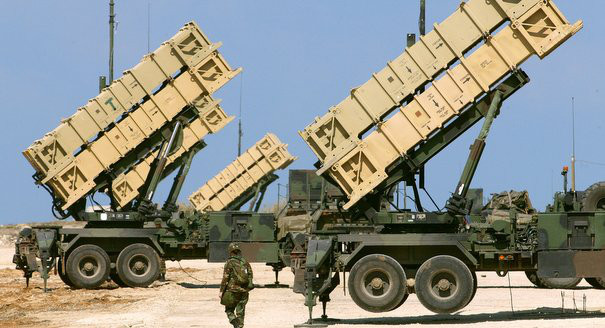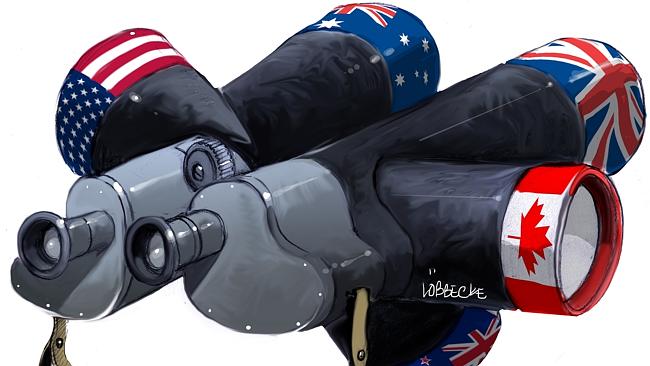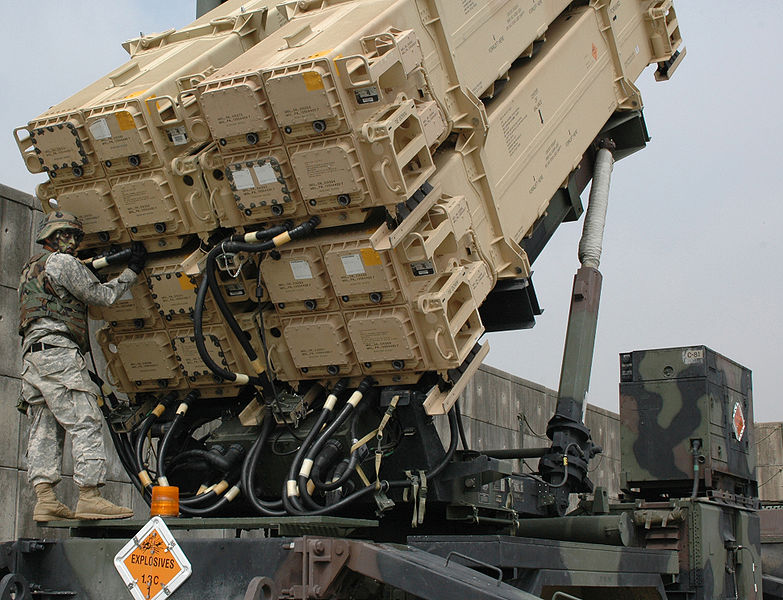The background
2012 is an interesting year in more ways than one; it is above all a year of milestones. Fifty years ago, the USA and the USSR were engaged in a deadly game of great power politics, eventually fighting largely inconclusive wars by proxy. This game of strategic positioning was encapsulated in a policy of distributing nuclear missiles around the globe, which started to be placed far too close for comfort. Never before in history had the bipolar world order of the 1960s come so close to nuclear annihilation.
Although many in North America prefer to remember the start of the 1962 Cuban Missile Crisis as the result of a Soviet initiative in Fidel Castro’s Cuba, the road to “Zero Hour” actually began with the deployment of US-built strategic ballistic missiles in Turkey.
Comrade Khrushchev simply didn’t appreciate NATO missiles pointed at his Dacha.
Ultimately, cooler heads prevailed, even if the events proved career-ending for some.
More missiles in Turkey 50 years after
The game of missile defence and deterrence never really ended – not with the end of the Cold War, Détente, nor with the “End of History”. Missile technology continued to move forward, most notably with Raytheon, Hughes and RCA’s MIM-104, commonly known as the Patriot missile – a surface to air system, which by now is a proven and effective weapon at intercepting both missiles and aircraft.
The Patriot missile’s grand debut was the 1991 Gulf War. During that conflict, the system was tasked to intercept Iraqi Scud or Al Hussein missiles. It was eventually revealed that its widely reported rate of successful interception was due to a software problem, which, combined with some technical issues, misreported the effectiveness of the system as a whole.
Now, the new-and-improved variants of the Patriot missile system are back in the news – and just in time for the 50th anniversary of the Cuban Missile Crisis!
Last Wednesday, November 27th, Turkey put in a formal request for the missiles. A NATO delegation to Turkey inspected existing military installations in the country’s south the day after, in anticipation of transferring the US-designed and built system to protect against Syrian aerial attack.
After mortar rounds and shells struck inside of Turkish territory killing five Turkish civilians, the NATO ally threatened retaliation and requested NATO assistance to defend against future attack from war-torn Syria. Although it is impossible to protect against mortars and shells, especially along the nine hundred kilometres of the Turkish-Syrian border, the real concern remains an outright chemical attack, whether misdirected, or one whose fallout would spill across the border.
These Patriot missiles would complement NATO’s existing early warning radar system in Turkey, but would remain under NATO command, and be governed by the standing air defense plan. Carmen Romero, a NATO spokeswoman stated that the delegation’s report and recommendation would be reviewed “without delay” by the twenty-eight-members of the North NATO Council. A favourable recommendation is more than likely, as many NATO members who possess the most advanced PAC-3 Patriot missiles, such as Germany and the Netherlands (the only two other countries besides the US which possess the missiles) – have already offered them to Turkey.
Special Considerations
The Assad regime has publically admitted to possess chemical weapons – this is a fact.
It is a real concern for neighbouring countries that if the regime begins to lose control over swathes of its outlying territory, those rebelling regions could face the regime’s wrath in the form of an undiscriminating chemical attack, which, depending on the proximity to the border, could affect other countries in the region.
The delivery of said chemicals would most likely occur by missile or aircraft, and for this reason, a Patriot missile system designed to catch stray Syrian missiles or lost aircraft makes the most sense. This concern has a basis in fact, since the Assad regime is known to possess artillery rockets, short- and medium-range missiles, such as the Soviet-era SS-21 Scarabs and the Scud-B missiles, the latter of which could be used for a chemical strike.
The likelihood of a deliberate aerial attack from Syria is relatively small as the Assad regime would not be able to wage a war of civil suppression at the same time as a conventional conflict – especially with the region’s largest and best equipped military. The most probable scenario is one in which an accident or some sort of confusion on the part of the Syrian military escalates into an all-out assault on Syrian positions by Turkish forces stationed right across the border.
The position of the Russian Federation
Not surprisingly, the Russian Federation’s Minister of Foreign Affairs, Sergey Lavrov has come out against the deployment of Patriot missiles in Turkey, stating that its proximity to Syria would only worsen the bloodshed.
Nevertheless, this situation presents a qualitatively different case study than that of any earlier military deployments in Turkey. A case in point is the setup of anti-aircraft batteries in Turkey by the US during the 1991 and 2003 wars in Iraq, which were removed from the country a few months later.
Although Ankara has affirmed that the Patriot missiles are a purely defensive measure, the militarization of Turkey’s southern border could reach a tipping point. If the present situation becomes untenable, and intervention by the international community becomes inevitable, Turkey and its large and well-equipped military will likely play a key role. Unfortunately, it is also the NATO member which is bound to have the largest casualties if any future intervention does in fact go ahead.
The rationale for the military buildup, and now the involvement of NATO stems from the already apparent involvement of Turkey in its southern neighbour’s civil strife. Turkey has hit back hard into Syrian territory, and the government in Ankara openly backs the Syrian opposition, calling for the resignation of President Bashar al-Assad.
This time around, however, nothing is being done in secret. No new silos with Jupiter missiles in Turkey and no inconspicuous cargo ships carrying SS-4 and SS-5 missiles to Syria – granted, Russian arms shipments have been a contentious subject throughout the twenty-month conflict. This time around, NATO and officials from the Russian Federation will meet Friday, November 30th to discuss the deployment of the new missiles, qualitatively a very different approach than the cloak-and-dagger secrecy of fifty years ago.
Sergey Lavrov, an awe- and fear-inspiring “grey eminence” in the Russian Federation plans to personally discuss the issue of Patriot missiles in Turkey with NATO’s Secretary General Anders Fogh Rasmussen.
No matter the criticism against Minister Lavrov in the past, his conclusion that, “…the more weapons there are, the more likely it is they will be used…” is a forecast that has historical grounding for actors in the region. Minister Lavrov followed up his comments, stating that “…in the military field, what is important is not intentions, but potential. And when potential increases, the risks grow…”Although Lavrov may wish to limit the civil strife, especially considering that more than 40,000 are already dead, the Russian Federation is in a de facto conflict of interest, denying allegations that it is propping up the Assad regime, while at the same time vetoing three UN Security Council resolutions on Syria. On top of this, criticism of Russian arms sales to Syria are often countered by Moscow with terse reminders that the Obama administration resumed weapons sales to Bahrain after that emirate violently supressed its protesting Shia underclass. In a climate like this, finger pointing and blame-deflection won’t get any UN resolutions through.
In the case of Syria and its complicated relationship with Russia, the aim of the power brokers in Moscow is to prevent the spillover of the conflict into Turkey. This would present Russia with the dilemma of whether or not to support its beleaguered ally (which provides Russia with a resupply point in the Mediterranean) and risk a conflict with NATO, or to cave-in, and thus demonstrate to its allies that Russia is not dependable in foreign affairs. In the end, it appears that in a situation like this, and this far into the game, concerned parties might simply want a face-saving exit.




